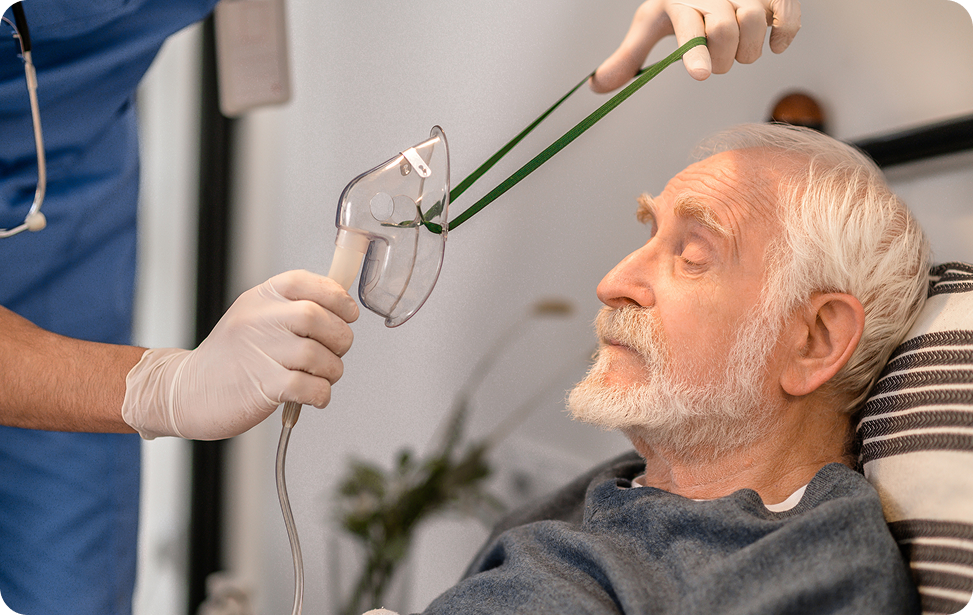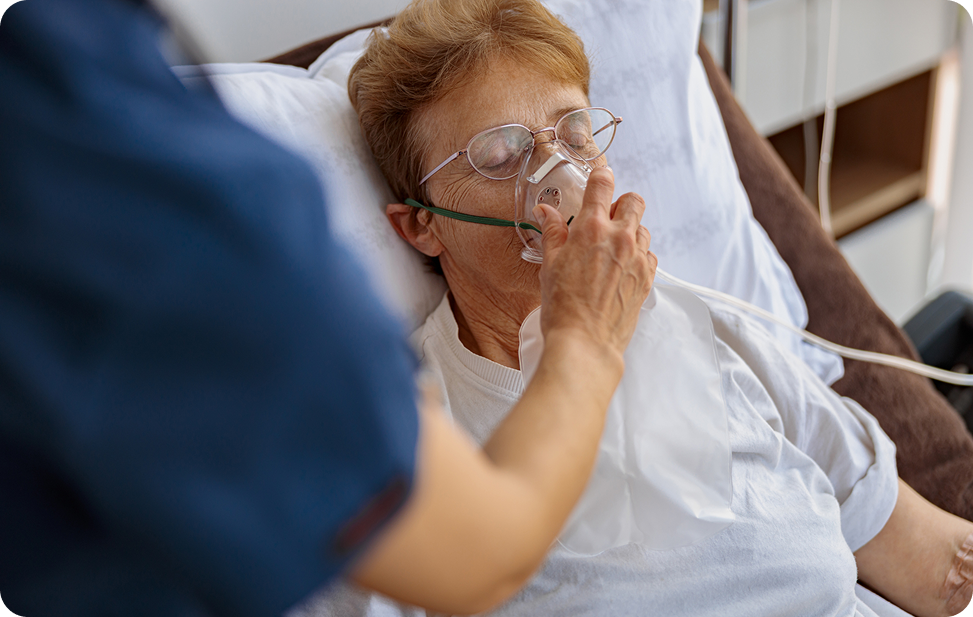
Compassionate End-Stage Care for Chronic Obstructive Pulmonary Disease
Ascend Health offers comprehensive COPD palliative care and hospice services designed to meet patients’ needs at different stages of their journey. Our expert team provides specialized nursing care for COPD patients and their families, focusing on symptom management, comfort, and quality of life through compassionate COPD end-of-life care when you need it most.


